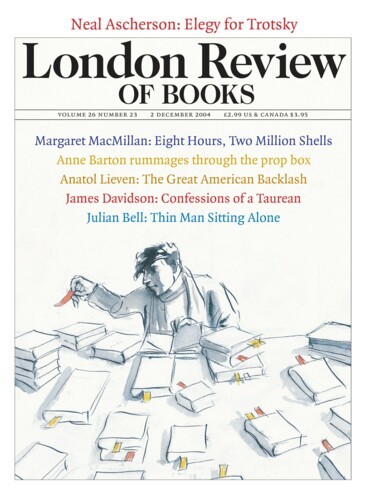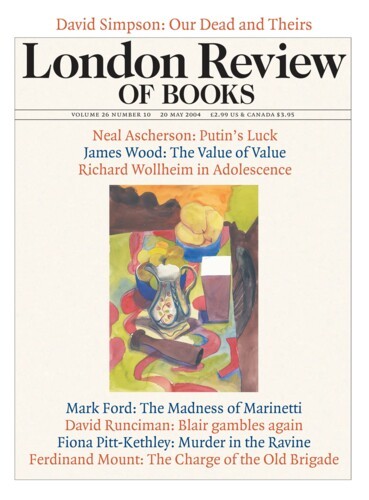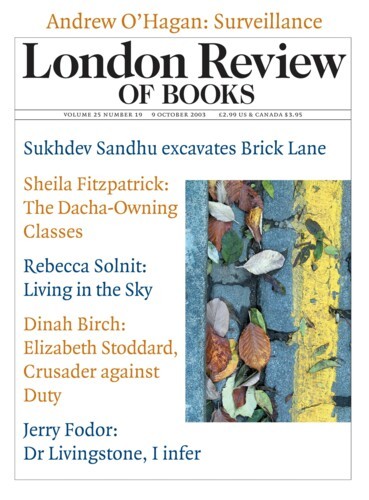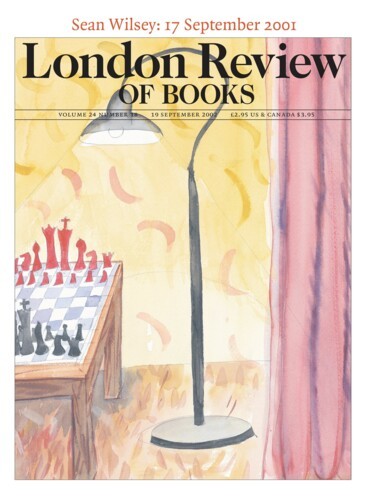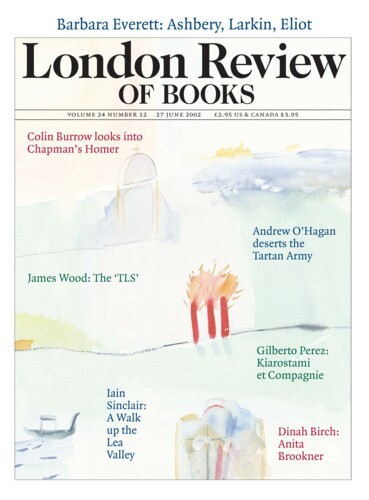How one has enjoyed things: Thackeray’s daughter
Dinah Birch, 2 December 2004
When Thackeray died in 1863 his eldest daughter, Anny, who was 26, was left not just with a famous name and a sum of money but with an established place in London literary life. Affectionate and needy, Thackeray had nurtured Anny’s talents, and used her as his amanuensis. Before his death she had begun to publish work of her own, including a vigorous novel, The Story of Elizabeth....
